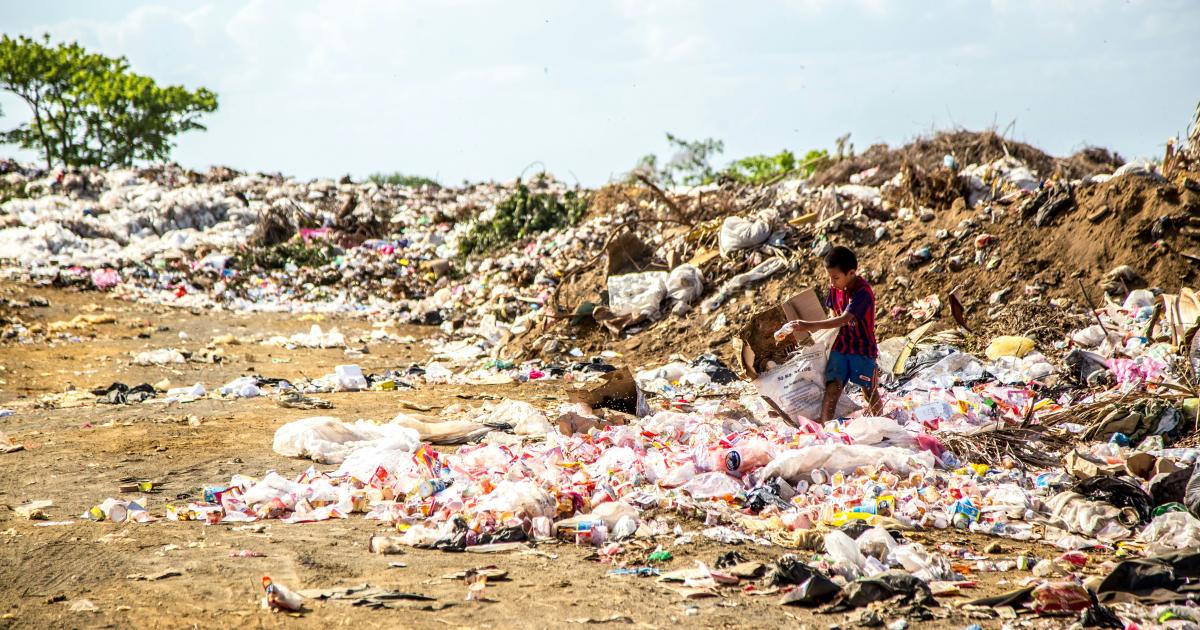Sustainable solutions to menstrual inequality - 5 minutes read

Promoting reusables
One unlikely trailblazer in this department is the North London Waste Authority (NWLA) – a public authority managing waste for seven north London boroughs. Reduce, Reuse, Your Cycle is the authority’s campaign to reduce period product waste.
Created in partnership with women’s health and climate charity, the Women’s Environmental Network (WEN), the campaign promotes reusables through on-street advertising, how-to workshops and product discounts.
WEN’s Environmenstrual Campaign manager Helen Lynn said: “I think it’s pretty groundbreaking that a waste authority is doing this work.
“When we started talking about environmenstrual issues in 1989, nobody had really made the connection between disposable products and the waste impact, the health impact, the social impact. Now, the climate has completely changed.”
Habitual
While reusable products are becoming more popular, advertising and social media have been the main drivers of growth.
Only a handful of public authorities have weighed in to promote reusables, among them a waste authority in Hertfordshire. As of last month, pharmacies in the Spanish region of Catalonia are giving out free menstrual cups, period pants and reusable cloth pads.
NLWA senior communications officer Maggie O’Shea said: “Period products are habitual. A lot of people use whatever brand their mum gave them when they first got their period.
“We aren’t trying to shame anyone for their choices, we just want to help them realise there is a reusable option.”
Unregulated
Disposable pads and tampons are also a potential health concern.
In the UK, there is no obligation on period product manufacturers to disclose what is in their products.
This is fine for cutlery, clothing and candles – which are in the same regulatory category as tampons and pads – but, as WEN’s Lynn pointed out: “Just because a certain chemical is in socks it doesn’t mean it’s safe to be stuck next to a very absorbent part of your body.
“If the levels of fragrance in period products were in cosmetics, they would require mandatory labelling.
“[Policymakers] don't think these residues are enough to harm health but the truth is they don't know.”
Implications
Indeed, period products have been found to contain harmful chemicals and residues, including from pesticides used on cotton crops and chlorine used to make tampons and pads white. Fragrances and antimicrobials are also added.
These not only have unknown health implications but perpetuate the myth that periods are unhygienic, adding such chemicals in the first place.
And though reusables trump disposables in many ways, there is no guarantee that they are safer. Period pants have been found to contain nanosilver, an antimicrobial.
In close and regular proximity to absorbent vaginal tissue, the health impacts of nanosilver are unknown.
Demand
For WEN, this is not a risk we should be taking. They are calling for regulation, and have drafted a Menstrual Health, Dignity and Sustainability Act to get the ball rolling.
In doing so, WEN follows in the footsteps of New York state, which became the first to enact a menstrual product disclosure law in 2021. Companies selling period products in New York are now obliged to list all intentionally added ingredients on their packaging and several other states have followed suit.
Speaking in a WEN webinar, New York State Assembly Member Linda B. Rosenthal explained that if companies have to label their products in New York, they might as well do so elsewhere.
Assembly Member Rosenthal said: “It creates a new norm and I have seen it spread to other states, even if they don’t explicitly demand it.”
Menstrual equity
Reusable period products are both a climate solution and a tool for menstrual equity, defined as the affordability, accessibility and safety of menstrual products as well as access to education and freedom from stigma.
Since 2015, period poverty – referring to a lack of access to menstrual products – has been the focus of menstrual equity activism in the UK. Activists won the removal of tax from single-use menstrual products in 2021 and influenced Scotland to become the first country in the world to provide universal access to products in 2022.
Costs
The relatively cheaper lifetime cost of reusable vs single-use products makes reusables a valuable tool for menstrual equity, as regards period poverty specifically.
But reusables’ contribution to menstrual equity is also evident if we turn our attention to ‘menstrual hygiene management’ (MHM) in the Global South, where major brands give free, single-use products to young menstruators with limited access to period products.
Menstrual activists and academics have criticised these brands for both creating a dependence on wasteful, potentially harmful products and perpetuating the idea that periods are a sanitation crisis to be solved.
MHM has also been criticised for white saviorism, invoking tropes of vulnerable women in the Global South needing to be rescued by Western experts who ‘know better’.
Another concern with companies giving out free single-use products – whether in the Global South and/or in countries that require products to be free, such as Scotland – is the risk that they will compromise on quality to reduce costs.
Alternatives
Speaking in a WEN webinar, medical doctor and filmmaker Dr. Njoki Ngumi discussed a 2019 protest against Procter & Gamble’s menstrual pads, Always, which monopolised the Kenyan market in part because it was the brand that gave free products to school girls.
Using #MyAlwaysExperience, menstruators in Kenya shared their experiences of itching, burning and rashes when they used Always products. When people from other parts of Africa joined in, campaigners wondered if Always’s products in Africa were different from those available in the US or UK.
Always have denied this. In the absence of mandatory labelling, we will have to take their word for it.
Reusable products are imperfect, but as cheaper, safer and less polluting alternatives to single-use tampons and pads, they could yet be a vehicle for a cleaner planet and fairer future.
This Author
Daisy Clague is a freelance journalist covering climate change and gender.
Source: Theecologist.org
Powered by NewsAPI.org